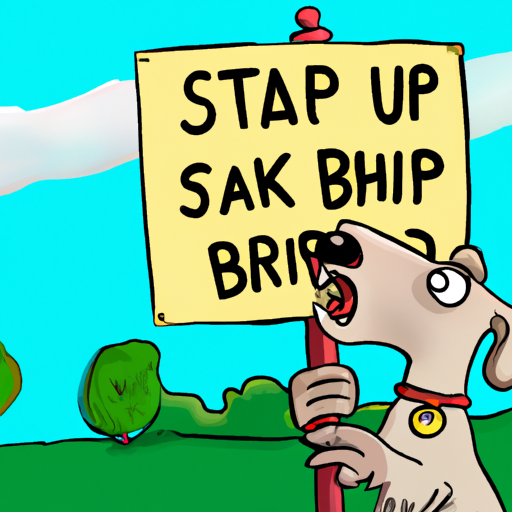1. Understanding Why Dogs Bark
Barking is a natural behavior of dogs. It’s their way of communicating with you and the world around them. But excessive barking can be a problem. Before you can effectively stop the barking, you need to understand why your dog is doing it. Here are some common reasons:
- Attention-seeking: Your dog may bark to get your attention or to start playing with you.
- Alarm/Fear: Some dogs bark at any noise or object that catches their attention or startles them.
- Boredom/Loneliness: Dogs left alone for long periods, whether indoors or outdoors, can get bored or lonely and start barking.
- Greeting/Play: Dogs often bark when greeting people or other animals.
2. Training Your Dog to Stop Barking
Training is an effective method to stop your dog from barking excessively. It requires time, patience, and consistency. Here are some steps you can follow:
- Remove or mitigate the trigger: If a certain stimulus is causing your dog to bark, try to remove it or make it less intense.
- Use the ‘quiet’ command: Train your dog to understand the ‘quiet’ command. Start by saying ‘quiet’ when your dog is barking. Once they stop barking, reward them with a treat.
- Ignore the barking: Don’t give your dog attention when they are barking. Only interact with them when they are quiet.
3. Using Positive Reinforcement
Positive reinforcement involves rewarding your dog when they behave correctly. This encourages them to repeat the behavior.
- Reward quiet behavior: Regularly give your dog treats when they are quiet, especially in situations where they would normally bark.
- Clicker training: Use a clicker to reinforce the correct behavior. Click and treat when your dog stops barking.
4. When to Seek Professional Help
If your efforts to stop your dog’s barking are not working, it might be time to seek professional help. This can be a dog trainer or a behaviorist. They can provide personalized training to help your dog.
5. Medication: A Last Resort
In extreme cases, your vet may prescribe medication to help control your dog’s barking. However, this should be your last resort, after all training efforts have been exhausted.
6. Preventive Measures
Prevention is better than cure. To prevent your dog from developing a barking problem, follow these tips:
- Provide mental and physical stimulation for your dog.
- Regular exercise can help reduce excessive barking.
- Regularly socialize your dog with other people and animals.
7. Tools and Techniques to Stop Barking
There are several tools and techniques available to help stop your dog from barking. Here is a comparison of a few:
| Tool/Technique | Pros | Cons |
|---|---|---|
| Bark Collars | Can be effective in curbing barking | Some dogs may find them uncomfortable |
| Ultrasonic Devices | Non-intrusive, can work for any dog | Effectiveness can vary between dogs |
| Training | Most effective method, strengthens your bond with your dog | Can be time-consuming |
8. Frequently Asked Questions
Q: Why is my dog barking at night?
A: Your dog might be barking at night due to fear, loneliness, or discomfort. Make sure they have a comfortable sleeping area and that their needs are met before bedtime.
Q: How can I stop my dog from barking at other dogs?
A: Training is the best way. Teach your dog to focus on you and ignore other dogs. Reward them when they do this successfully.
Q: Can I use a bark collar on my puppy?
A: It’s better to use positive reinforcement methods with puppies. Bark collars should only be used as a last resort and with professional guidance.



